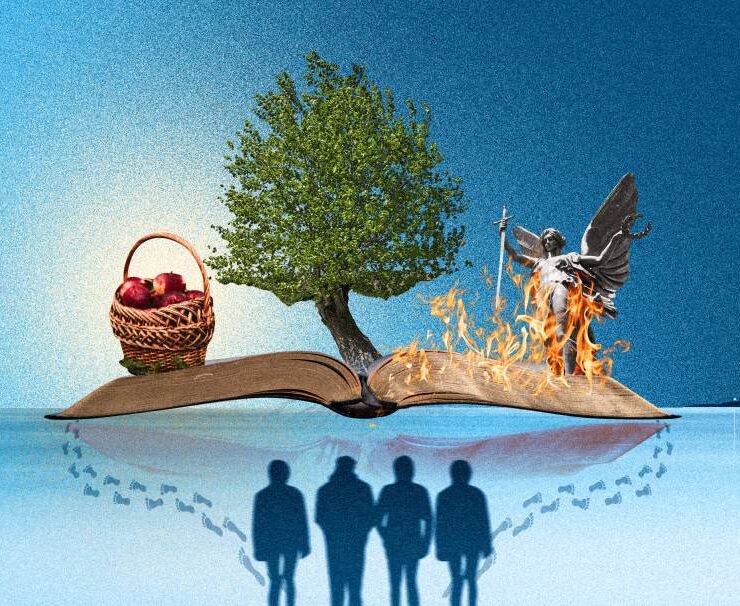Eternity is on our horizon when we accept Jesus

Readings: 1 Kings 19:4-8; Psalm 34, R. Taste and see the goodness of the Lord.; Ephesians 4:30—5:2; Gospel – John 6: 41-51
Admittedly, these next two or three Sundays, the Gospel readings will be difficult to reflect on. The challenge comes from two aspects of the readings. One, they are very repetitive, and two, they offer a complex discussion on a “theology” of the bread of life.
Add to this the structure of the discourse where things come together at the end, the Gospel reading two Sundays from now, the 21st Sunday in Ordinary Time.
Let us then use this end of the discourse as our horizon for our reflections, the horizon of choice.
There are two claims the Lord makes today. One is the depth of his relationship with God, his Father, a claim of divinity, and two is his being the Bread of Life.
To better appreciate the ending of this discourse, take note of the reaction of the people at the start of today’s Gospel. This is our first point for reflection.
“The Jews murmured about Jesus because he said, ‘I am the bread that came down from heaven,’ and they said, ‘Is this not Jesus, the son of Joseph? Do we not know his father and mother? Then how can he say, ‘I have come down from heaven’?’” (cf. John 6: 41-51)
They had difficulty accepting what Jesus was saying because they thought they “knew him.” He was one of them. They knew his parents.
This gives a inkling of what the outcome of the discourse would be. They would not be able to accept Jesus as the Bread of Life. They were trapped in their biases, which perhaps they were not even aware of.
Our salvation
How often do we fall into this same trap? This is why the Lord also reminded us to be like little children whose innocence, trusting nature, and humility make them open not just to new things, but to see reality without biases.
With this perspective, the people failed to be open to the two claims Jesus made, his intimate relationship with the Father and his being the Bread of Life.
Accepting the intimate relationship of Jesus with the Father is central to our salvation. In the mystery of the Transfiguration, the Father explicitly told us, through the apostles Peter, James, and John: “This is my Beloved Son in whom I am well pleased, listen to him.”
Jesus being the Beloved Son lies at the center of his proclamation and mission, and our believing in him and accepting him as such is central our salvation, our very identity and mission as Christians.
The Lord explicates the full impact of faith in Jesus as the Beloved Son, which is the grace of eternal life.
Jesus then moved to make his second claim, which was to assert that he is the Bread of Life. This claim changes everything.
“I am the living bread that came down from heaven; whoever eats this bread will live forever…”
Here lies the promise of the Eucharist. It promises us eternal life. It is the life-changing moment of grace that makes us realize that our life will not end in death, but its horizon is eternal life.
This is what gave courage to those who offered their very lives for the sake of the Gospel. This is the inspiration of many who dedicated their lives to a life of service.
The irony of this narrative was that the people who sought him after the miracle of the loaves and fish—the crowd Jesus was addressing in the narrative—were the same people who would doubt and question him.
These were the people who would desert him and turn their backs on him. They left him because they could not take his claim of divinity—being the Beloved Son.
They failed to see that beyond the fives loaves and two fish, there is so much more when we see Jesus as the Bread of Life.
With Jesus, the horizon of our life is eternity.





















